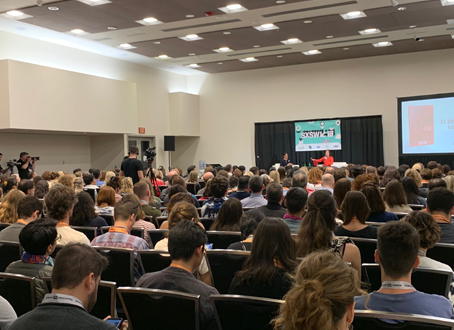If you talk to the chief executives of any successful company, they will usually attribute their success to three things: talent, talent, talent. Steve and I have always believed this to be true, both in our work in the private sector, as well as in our work in the social sector. Talent is usually the difference between an organization’s ability to scale, innovate, or execute effectively, versus others that do not.
In the social sector, which we define as those organizations responsible for finding or funding solutions to complex social challenges, there are many remarkable and passionate leaders who inspire us. And yet, most would agree that we’re lacking a “deep bench” of talent in this sector, perhaps more so than in most. There are many contributing factors at work here, often including a lower base of compensation, a perceived limitation to career growth opportunities, and the burden of vetting and approval processes for those wanting a career in government, among other barriers. So what to do?
At the Case Foundation, we have worked tirelessly with partners that include Points of Light, the Corporation for National and Community Service, Deloitte, HP, IBM, Capital One, and others, to inspire and encourage companies to contribute time and talent to nonprofits to help them scale and more effectively sustain the work they do through an initiative called A Billion + Change. We also applaud organizations like IBM’s Corporate Service Corps, Code for America, Venture for America, and Teach for America that are developing new models for deploying top talent to change the world.
We have been encouraged by others working on this strategic issue, including the Bridgespan Group, the White House Forum on Nonprofit Leadership convened by American Express, Public Allies, and others; executive recruiting firms that specialize in nonprofit recruiting; and even Harvard University, which is working with the public sector to share best practices of successful companies in developing and recruiting best-in-class talent.
But this issue turned more personal for us in recent weeks as one of our very own “best in class” executives at the Case Foundation, Michael Smith, came forward to let us know he had been approached by the White House to head up the Social Innovation Fund, a key Obama Administration initiative. Michael is an extraordinary talent and invaluable contributor to the work of the Case Foundation. His progressive climb at the Case Foundation is indicative of his many remarkable attributes. In his work with us, Michael has led our social innovation efforts and together with other Case Foundation colleagues, has added so much value to the work we do and to that of our partners. Michael has guided many of our most successful initiatives, such as the Startup America Partnership and Citizen-Centered solutions, and has been a trusted and valued face and ally to most of our closest partners.
As Michael came forward to seek encouragement to pursue the opportunity presented to him, my first reaction was one of slight panic, and yet I had to remind myself that what the public sector needs most greatly is talent. It was one of those moments – was I going to act in manner that was consistent with what I’ve been preaching about the need for talent in the social sector, or would I try to talk Michael out of it and let the self-interested side win the day? Thankfully, the better angels won the day. We feel honored that “one of our own” has been asked to step into this important role and we quickly not only gave Michael our blessing, but each of us has committed to doing what we can to be helpful to him in his new role. While it won’t be possible to replace Michael, we anticipate bringing a new SVP of Social Innovation on board soon. In the meantime, our exceptional Senior Fellow Sonal Shah, a sector-crosser herself, has volunteered to spend more time with us in the next few months to make sure we keep the balls in the air during this transition.
The challenges facing our communities and our nation are daunting, while at the same time many resources are shrinking. In many cases we need to retool, rethink, and bring new approaches to old problems. And we need to think about how sectors can work together to build a deep bench of talent to take on these important and strategic roles in the public sector. Leaders across sectors need to think about the talent they have – whether their own or those who fill a valuable slot on their teams — and just how we can begin to build a “bench” to ensure that the brightest and best are getting placed where their talents can be fully leveraged to build stronger communities and a stronger nation. For some this might be executive-on-loan programs – for example, we’re delighted to see our partner Jen Pahlka taking a year-long leave from Code for America to serve as White House Deputy CTO. For others it may mean developing policies that enable the best-in-class talent to give a small amount of their time to nonprofits in board or consulting roles. And then for some, as we faced this week, it may take a larger commitment — encouraging valued senior executives to serve the public sector when asked.
The scale and scope of the problems we face as a nation will require that we use all the tools at our disposal, that we disrupt the stale and stagnant, and that we realize game-changing solutions will require blurring and (maybe erasing) the lines between .com, .org and.gov. And, I’m grateful to the folks like Michael, Jen, Sonal, and many others that are leading the way.





